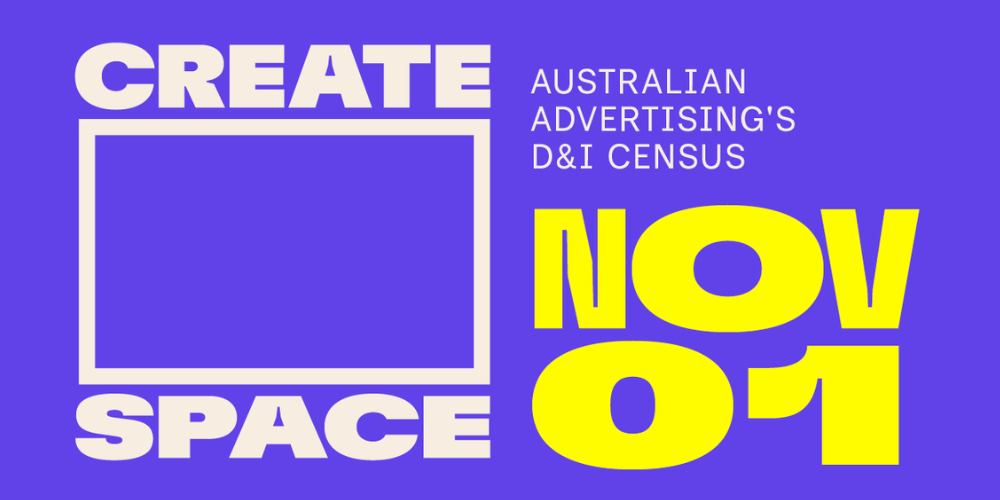
By Kahli Fenn
•
27 Mar, 2024
Did you know that approximately 80% of people that start in a role will make the decision of whether they will leave in the first few months?Yikes! Talk about pressure to get it right. It’s like they say, you never get a second chance to make a first impression. So let us help you stand out and set your employee up for success! Onboarding starts before the start date Let’s not make the mistake of thinking that once the contract is signed that the hardest part is over. What comes next is your chance to shine! 1 week before the start date - get in touch with your new recruit to say you’re looking forward to having them join the team. Include where, when, and who to ask for when they arrive. If you don’t have this detail yet, let them know that someone will get in touch a few days before to set them at ease that it’s all organised and under control. Develop a structured induction program and block time in diaries for those involved to ensure that all colleagues have this time allocated and can plan ahead. 1 day before the start date - send them a text message. A simple “Looking forward to seeing you tomorrow!” can help new starters feel welcome and will calm any first day jitters. Ensure you have all tech ready to go, including computer passwords, logins, swipe cards etc. It’s a good idea to have IT on standby too as some sort of technical issue is bound to come up. 2. The first day Ever started a new role and looked around to realise it’s a ghost town? Not a great look. Plan to have them start on a day where the majority of people are working from the office rather than from home - we know that culture is key for marketers, so make sure they experience it at its best from day 1. Energy and vibe play a big part in this. Welcome pack. Include a “surprise and delight” when they first sit down at their desk. This could be a mixture of company branded items (like notebook and pens) to a handwritten card or note from them team welcoming them. You may also like to include some added details like the best places for lunch or coffee in the area. Think about your employer brand and tone of voice and what kind of welcome would best represent your style, after all, that’s what the candidate has bought into. I once started a new role and had 3 x coffee vouchers for the best café around the corner, it’s the little and thoughtful things that leave a lasting impression. Assign them a buddy - usually a colleague in a similar role that they can shadow and ask any questions about process, systems or where the bathrooms are! The line manager may not always be available so having this person helps them feel welcomed, supported and part of a community from the get-go. 3. Employee retention How you engage in the first few months is crucial to employee retention. Just as much as it’s time for the candidate to showcase why you hired them, it’s also time for you to deliver on what you discussed in the interview process too e.g. company culture, values, management style. It’s important to set your employee up for success by setting time-bound expectations and objectives, ensuring you’re both on the same page. Breaking these down by month and structuring regular catch-ups to discuss feedback are a great way to have open conversations around performance. E.g. Expectations from months 1-3 vs 3-6. In the first month, we recommend a daily more casual check-in for junior candidates and at least weekly for more senior candidates. Having these diarised, even if short meetings, are essential to allowing open discussion and ensuring everything in on track. We know finding the right person for the role takes time, money and effort, so ensuring you have a solid onboarding process in place is a crucial element to a successful hire. By investing in a well thought out and purposeful process that reflects your employer brand, you are not only investing in your new employees but also in the long-term success of the company. As your recruitment partner, we’re here to support onboarding new hires into your business to help you get the best outcome. Keen to chat on how we can do that for you? Reach out to one of our Talent Partners to discuss.

By Christine Gilbert
•
29 Nov, 2023
At iknowho we understand how busy both agency and in-house marketing teams are in the lead up to Christmas. There are many benefits of using short term freelancers, so let’s explore how they can be a valuable addition to your team through the busy Christmas / New Year period. Short term freelancers offer your team: Flexibility Short term freelancers are available and can usually start within a week. Whether you need a specialist for a short-term campaign or additional support during busy periods, freelancers offer the flexibility and agility needed to meet rapidly changing workloads & high project timelines. They give you the flexibility to hire talent on-demand without the commitment of a long term employment contract (and using our payroll services can help you get around head count issues too!). The skills you need You know the exact projects a short term freelancer will work on, allowing you to hire someone with the specific experience / skills needed complete the tasks at hand. Diverse Experience & Energy Many agency suits and marketers build a career through freelancing. Their diverse experience working with different businesses results in freelancers having a fresh perspective & injecting fresh energy into the team. Competitive Rates iknowho freelancers are paid a day rate which includes a loading for leave entitlements. There are no upfront fees, you only pay for the days they work. And we can also offer payroll services if needed. Download our salary guide for day rate equivalents, or use our day rate calculator here . They hit the ground running With experience in similar positions, freelancers join your team with a fresh perspective and focus on delivering specific tasks. Their ability to hit the ground running and work independently also frees up your time! Although permanent hiring traditionally slows down this time of year, the use of short term freelancers usually picks up. Our clients commonly use short term freelancers to: Deliver high volume work in a short timeframe Cover staff holidays Get around head count freezes Manage ad hoc projects outside their teams’ usual scope of work or current capabilities So, whether you are looking for an AM with integrated experience, a SAM with CRM and social skills, an integrated campaign manager, digital marketer, or even a more senior suit to support team leadership and manage senior clients? We’ve got you covered! Reach out to one of our experienced Talent Partners to discuss your needs today.

By Riza Karis
•
14 Nov, 2023
I’ve recruited in the junior marketing space for the last two years, I have spoken to fresh graduates looking for their first job in marketing, junior marketers both in house and agency side looking for their next move and conducted just under 500 interviews in the last year alone. Here are the common drivers for junior marketers: 1. Learning and growth: Junior marketers are like sponges. They want opportunities to learn and grow. Induction, training, mentors, buddies, KPI’s, feedback and career development plans. No, they don’t need these to be spoon fed to them, but the more you invest in them, the more likely they will succeed. 2. Great culture: I drilled in a little deeper into what this means for them; a supportive and collaborative environment, social events, work buddies and a good manager who is there when they need but not to micromanage them. Overall ‘good vibes’. Also worth noting, in our 2023 Marketers Survey, culture ranked the most important factor, over a range of ages, when candidates considered a new role. 3. Creative say: Junior marketers are the creative types. They love a job where they can throw their ideas around and help shape the creative outcome of their work. 4. Responsibility: They don't want to just be the work experience kid. They want some ownership and to take charge of their own projects but have the support when needed. 6. Money talks: Let's be real; they care about the cash. And in this cost-of-living crisis, can you blame them? And agree that money talks across most levels, but an extra $5k will usually be a determining factor to their decision making. 7. Titles matter: They are driven by titles as it’s validation that they’re good at what they do professionally, i.e., they’re on the way to ‘making it’. Sometimes this trumps salary. 8. Company values: Speaking to this younger generation, there’s a common theme which comes out stronger than the older generations currently in the work force. They care more about social causes and purpose driven work. They want their careers/their company to make a positive impact in this world. From sustainability to diversity and inclusion, this generation generally cares more. 9. Work-Life Flexibility: There’s two factors to this, hybrid working and work life balance. Firstly, hybrid working, this generation may have started their careers during covid, so working from home is the norm for them. Their ideal working situation is a hybrid, 3 in the office, 2 days from home, but the underlying message is even more important, their employers trust them. Secondly, work-life balance, junior marketers aren’t afraid of hard work and realise in this industry a set 9-5 doesn’t always apply. But I’d have to say this generation is far more courageous to walk away from a constant burn and churn environment than their more senior colleagues. Perhaps it’s because they consider and prioritise their mental health rather than a ‘push through it’ approach. They want a job that lets them juggle their work and personal life like a pro. So, if you’re a hiring manager, looking to attract a junior addition to your team, or currently, a people leader wondering how best to retain your junior marketers, consider the above and see if you are offering this in your company.

By Christine Gilbert
•
30 Oct, 2023
In recent years it’s been great to see Diversity, Equity, & Inclusion (DE&I) initiatives gaining momentum and increasingly being used as a way for companies to attract and retain top talent. DE&I initiatives include policies addressing discrimination, parental leave, mental health awareness & support, micro-aggressions in the workplace, the representation of women & minorities in management, as well as the experience & representation of those with disabilities. So, what are some of the benefits your company can experience from engaging a diverse workforce? Enhanced creativity, problem solving, and innovation Relatable & effective campaigns: from increased understanding of target market nuances Robust Decision Making: from examining issues from different points of view Engaged employees: a sense of belonging fosters increased happiness & productivity Employee attraction & retention Though many large companies mention diversity as part of their business strategy, merely displaying a mix of faces in a team photo on their website's "About Us" page is not enough. In order to reap the full rewards of a diverse workforce, companies must fully embrace and prioritise diversity. 69% of respondents in our recent iknowho Annual Marketers Survey said they would turn down a job offer if the company did not support DE&I initiatives. So, employers take note! In 2021 the Ad Council of Australia (ACA) set up Create Space - a long term project to track & improve the diversity, equity, and inclusion of the advertising sector. The 2021 Create space Census revealed some hard truths: Women are underrepresented in senior roles despite being 60% of junior mid level workforce While we are fairly diverse ethnically, diversity is not translating to inclusion - with far more experiences of discrimination and negative behaviour among those identifying as ethnic minorities 1 in 5 people are likely to leave the advertising industry due to discrimination or lack of inclusion. Almost a third of our LGBTQI+ respondents choose not to disclose their orientation at work Almost half of respondents experienced or witnessed incidents of micro aggression Since then the ACA have: Identified six action areas, created a resource hub empowering agencies to improve in these areas, plus introduced agency accreditation, professional standards and a code of conduct. Create Space is back on November 1 to measure how it feels to work in and around Australian advertising in 2023. Has it got better? Has it got worse? What do you think? Inclusion at work affects everyone, and we see huge value in supporting the ACA who are working with the industry on taking action, sharing resources, as well as providing education and support. We’ve blocked out 15 mins in our diaries to complete the census with our morning coffee on Wednesday & we urge you to do the same. Click here to participate, and support this journey toward a more diverse & inclusive future for our industry. #CreateSpaceAustralia #diversityandinclusion

By Kristina Gerdov
•
09 Oct, 2023
Salary negotiation can be intimidating, but it doesn’t have to be. With the right approach and some prep work, you can achieve the best possible result. iknowho Lead Talent consultant, Sheryn Small says “asking your boss for a pay rise is no different to pitching an idea to your client. Do your research. Know your audience. Come armed with facts. Get your timing right, keep it tight and leave your emotions at the door.” Based on our annual Marketers Survey (2023) 53% of respondents received a pay increase in the last year and from those that didn’t, 72% said they were open to looking for a new role. So, we’re here to help prepare you to have that sometimes tricky conversation with some simple tips in order to potentially avoid having to jump ship: 1. Know Your Worth Before entering any salary negotiation, it's crucial to have a clear understanding of your skills, expertise, and what sets you apart from your colleagues. Ask yourself: · What are my unique skills and strengths? · What accomplishments or projects have I successfully completed? · How have I added value to my current or previous employers? The key is not focusing on your desire to have more money but rather on your value and contribution. 2. Gather Supporting Evidence In any negotiation, information is power. To make a strong case for the salary you want, round up some solid facts and figures to back it up. Create a business case with your accomplishments, highlight instances where your contributions led to increased revenue, cost savings, or improved processes. You need to go beyond how you’re delivering on your current KPI’s, it’s about showing how you’re delivering above and beyond. iknowho GM Kahli Fenn says, “I encourage candidates to keep track of their achievements throughout the year. You might like to create a folder in your inbox of those moments where you know you have performed well. It might be that great piece of feedback you had from a client or some fantastic results delivered on a campaign. It’s easy to forget all those wins but if you file them away, it can be helpful when it comes time to have the conversation.” 3. Research Market Guides To ensure your salary expectations are realistic and in line with industry standards, research market guides and salary surveys . These resources provide valuable insights into the typical packages for your role and experience level. Having this information, you can confidently negotiate a salary that aligns with not only your skill but market rates as well. 4. Practice makes perfect Be prepared to articulate your case clearly and professionally. Consider the following communication tips: · Practice in advance. · Be confident and assertive but not confrontational. · If you don’t get the response you’re looking for initially, ask for some time to think it over, don’t feel the pressure to leave the conversation there. · Listen actively to the responses and be open to compromise. Which leads us to our next point… 5. Be Open to Non-Salary Benefits While a higher salary is often the primary focus, don't overlook other benefits that can make your overall situation better. These may include flexible work arrangements, additional annual leave days, development opportunities, bonuses. Be open and prepared to discuss these aspects as well. 6. Timing Matters Picking the right time to talk salary changes can really make a difference. Ideally, initiate these conversations during performance reviews, when you're receiving a new job offer, or when you're taking on more responsibilities. Ask for time in your managers diary outside of your standard catch ups, letting them know that you’d like a meeting to discuss your performance and contribution to the team. This gives your manager the opportunity to not be caught off guard and enter into the conversation in the right headspace. Bec Godkin our Senior Talent Consultant also encourages "Being prepared is critical, success is in the detail. Approach the conversation armed with evidence-based examples of your contribution. Demonstrating your direct involvement highlights and reinforces your dedication" Salary discussions need not be intimidating, but rather a persuasive pitch, armed with facts and confidence. Get in touch with your iknowho consultant if you’d like more tailored advice to your situation, we’re here to help. Click here to download the latest Salary Guide for the Marketing World.

By Heidi Bennett
•
16 Aug, 2023
Resigning from a job can be a daunting experience, but it's a crucial moment that can define how your professional legacy will be remembered. While your achievements during your tenure matter, it's often how you leave a business that lingers in the minds of your managers and colleagues.

By Christine Gilbert
•
03 Aug, 2023
A good job description is both a tool for attracting qualified job applicants, and also for evaluating them through the interview process. Writing one can seem like a daunting task … but it needn’t be. Putting your marketing hat on, a Job Description is like a brief you might write for one of your agencies, only in this instance you are briefing job seekers. It’s important to know who your ideal candidate is. They are your target market for this communication. Use the structure outlined below to build a job description that will appeal to job seekers, allowing them to see how and where they would fit within your company & marketing team. Role Title Keep it simple. Use role titles which are common in the market so candidates can quickly understand what the role is, and if their skills are suitable. Using quirky job titles can be confusing, ending in candidates overlooking a role, or applying for the wrong roles. Company Overview This is a great place to inject the brand personality into the job description through tone of voice and writing style (formal, playful, energetic, etc). It’s also the place to outline company values if they are central to the business. Keep it to 2-3 paragraphs outlining who the company mission, and it’s products / operations. Job Purpose Why does this position exist? How does it make a difference or help the marketing team / company move towards its goals? Understanding the job purpose is particularly important for Gen Z, so this is definitely something to keep in mind if your ideal candidate falls into this demographic. Team Structure Outline the structure of the marketing team and where the role fits. Who do they report to? Who will they work closely with? Do they have team management responsibilities? Outline key working relationships with other departments. Responsibilities / Duties Although it can be tempting to include every single task this position might do, try to keep this section to 10 bullet points for junior marketers & 15 bullet for mid to senior positions. Use engaging verbs (eg. Initiates, executes, leads, coordinates, adapts, reports, advises) so that candidates can imagine themselves doing these actions. List duties in order of their importance and/or frequency in which they are performed. Include explanatory phrases which tell why, how, where, or how often tasks and duties are performed. Focus on the outcome of tasks. Reference areas of decision-making and where approval is required Describe the level and type of budgetary or financial responsibility If less than 5% of the time will spent on a particular task, either combine it with another smaller task, or leave it out. Skills & Experience Required Focus on skills & experience rather than a specific number of years. Try not to be too prescriptive. Think about “must haves” versus “nice to haves” Do they really need a degree? e.g. Degree qualification in Marketing or relevant industry experience Are you open to candidates with similar experience eg. Experience with Hubspot or similar List skills & experience in terms that are commonly used, so candidates can effectively understand if they meet your selection criteria Try to keep this section to around 10 bullet points Benefits What’s in it for them? To present benefits in a relevant & attractive way to candidates, outline how each perk will benefit them. Eg. Hybrid Working: Avoid the grind of the daily commute and gain valuable hours in your week by working from home on Tuesdays, Thursdays, and Fridays. Like with any marketing brief - the more time / thought you put into it upfront, the better the result! If you are looking for help finding the best marketers to join your team or just want to chat about industry trends and the job market at the moment, don’t hesitate to get in touch with our specialist marketing recruitment team.









